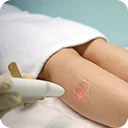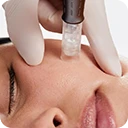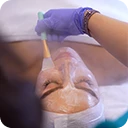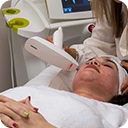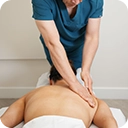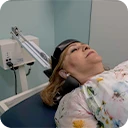Acupuncture, with its roots reaching back thousands of years, stands as a testament to the enduring power of traditional healing methods. Originating in ancient China, acupuncture is based on the principle of restoring balance within the body’s energy system, known as “qi.” Practitioners believe that when this energy flows harmoniously through pathways called meridians, the body remains healthy and resilient. Disruptions or blockages in these energy channels, however, are thought to contribute to various ailments.
Today, acupuncture has transcended its traditional origins to become a popular component of holistic wellness in modern society. Its appeal spans cultures and backgrounds, drawing individuals who seek natural, minimally invasive approaches to health. This ancient practice is not only recognized in wellness communities but is also increasingly acknowledged by medical professionals worldwide for its therapeutic potential.
What sets acupuncture apart is its ability to bridge the gap between old and new. While its foundation lies in traditional wisdom, many practitioners now combine time-honored techniques with evidence-based medical knowledge. This fusion has propelled acupuncture into the forefront of integrated health, making it accessible and relevant for those striving for balance and vitality in today’s fast-paced world.
Myth vs. Reality: Addressing Misconceptions About Acupuncture
Despite its long-standing history and proven track record, acupuncture remains shrouded in myths and misconceptions. These misunderstandings can deter individuals from exploring acupuncture’s potential benefits, or worse, lead to unwarranted fears and skepticism. Some believe acupuncture is inherently painful, while others dismiss it as nothing more than a placebo. There are also notions that it addresses only specific ailments or that a single session can provide lasting relief.
Addressing these misconceptions is crucial for anyone considering acupuncture as part of their wellness journey. By separating fact from fiction, individuals can make more informed choices about their health and well-being. It’s important to approach acupuncture with an open mind, grounded in accurate information rather than hearsay.
The sections that follow will unravel some of the most common myths associated with acupuncture. By examining the true nature of this practice, and presenting evidence-based facts, readers can gain clarity and confidence in deciding whether acupuncture aligns with their wellness goals. Understanding the realities behind these myths is the first step toward embracing acupuncture’s full potential.
Is Acupuncture Painful? The Truth About Needle Sensation
One of the most persistent myths surrounding acupuncture is the fear of pain from the needles. This misconception likely stems from the association of needles with medical injections or blood draws, both of which can cause discomfort. However, acupuncture needles are fundamentally different in both design and application.
Unlike hypodermic needles, acupuncture needles are exceptionally thin—often no thicker than a strand of hair—and are designed to be flexible. Their tips are gently tapered rather than sharp, allowing for smooth insertion with minimal tissue disruption. During a session, a skilled practitioner inserts these needles with precision, often causing only a fleeting sensation, such as a mild pinch or tingling.
Most individuals are pleasantly surprised by how comfortable the process is. Some report feeling a momentary heaviness, warmth, or a dull ache, which are all normal sensations indicating the body’s response to the treatment. Many even find the experience deeply relaxing, with some drifting off to sleep during the session. The emphasis on gentle technique and patient comfort ensures that acupuncture is generally well-tolerated, making it accessible even to those with needle sensitivities.
Beyond Pain Relief: The Diverse Benefits of Acupuncture
It’s a common belief that acupuncture’s sole purpose is to alleviate pain. While pain management is certainly one of its most well-known applications, the scope of acupuncture extends far beyond this single benefit. In reality, acupuncture is a versatile therapy that addresses a broad spectrum of health concerns—both physical and emotional.
Regular acupuncture sessions have been shown to help reduce stress and anxiety, fostering a sense of calm and emotional stability. By targeting specific points, practitioners can support the body’s natural ability to manage tension, regulate mood, and promote mental clarity. Additionally, acupuncture is frequently used to improve sleep quality, helping those with insomnia or disrupted sleep patterns find more restorative rest.
Digestive health is another area where acupuncture shines. By harmonizing the body’s internal systems, it can alleviate symptoms such as bloating, indigestion, and irregularity. This holistic approach recognizes the interconnectedness of the body’s systems, aiming to restore balance and enhance overall well-being. Whether seeking relief from chronic conditions or striving for optimal health, acupuncture offers multifaceted benefits that support a harmonious lifestyle.
Placebo or Proven? Scientific Insights Into Acupuncture’s Effects
Skepticism often arises around acupuncture, with some attributing its effects solely to the placebo phenomenon. This myth overlooks a growing body of scientific research that demonstrates acupuncture’s tangible physiological impact. Clinical studies have shed light on how acupuncture stimulates the body in ways that go far beyond mere suggestion.
One key finding is acupuncture’s ability to trigger the release of endorphins—natural pain-relieving chemicals produced by the body. This response not only reduces discomfort but also promotes a sense of well-being. Additionally, acupuncture has been shown to decrease inflammation, a common contributor to both chronic pain and various health disorders.
Further research highlights acupuncture’s influence on the nervous system, particularly its role in modulating pain signals and supporting the body’s stress response. These measurable changes provide concrete evidence of acupuncture’s effectiveness, validating its use as a complementary therapy for numerous conditions. While the placebo effect may contribute to any therapeutic experience, acupuncture’s benefits are rooted in observable physiological mechanisms, making it a valuable tool in modern healthcare.
Acupuncture as an Ongoing Wellness Journey, Not a Quick Fix
Another misconception is that acupuncture acts as a one-time, magic solution to health problems. While some individuals do experience noticeable relief after their initial session, sustainable results typically develop over a series of treatments. Just as with other wellness practices, healing through acupuncture is a gradual process that honors the body’s unique rhythm and needs.
Practitioners often recommend a personalized treatment plan based on the individual’s condition, lifestyle, and goals. This plan may involve weekly or bi-weekly sessions, with adjustments made along the way as progress is observed. The cumulative effect of regular acupuncture sessions allows the body to rebalance, adapt, and heal more effectively.
Importantly, the journey is a collaborative one, with open communication between client and practitioner playing a crucial role. By actively participating in the process—through feedback, lifestyle adjustments, and adherence to the treatment plan—clients can maximize their results. Embracing acupuncture as part of a long-term wellness strategy, rather than expecting instant fixes, sets the stage for profound and lasting benefits.
More Than Physical: Acupuncture’s Impact on Mental and Emotional Health
Acupuncture is often mistakenly viewed as a therapy that targets only physical ailments, overlooking its profound impact on mental and emotional health. In practice, acupuncture is grounded in the belief that the mind and body are intrinsically connected—what affects one invariably influences the other.
By activating specific points associated with stress regulation, acupuncture helps calm the nervous system and reduce the physiological effects of anxiety and tension. Many clients report feeling lighter, more centered, and emotionally balanced after sessions. The therapy also supports improved mental clarity, sharpening focus and fostering a greater sense of inner peace.
This holistic perspective recognizes that wellness encompasses more than just the absence of physical symptoms. By nurturing the mind-body connection, acupuncture promotes resilience, emotional stability, and a deeper capacity to cope with life’s challenges. Whether facing daily stressors or seeking to enhance overall mood, acupuncture offers valuable support for both mental and emotional well-being.
Evolving Practices: How Acupuncture Blends Tradition With Modern Science
While acupuncture is deeply rooted in ancient traditions, it is far from a static or outdated practice. Today’s acupuncture practitioners are continually evolving, drawing from both the rich heritage of Chinese medicine and the latest scientific advancements. This blend of tradition and modernity enhances both the safety and effectiveness of treatments.
Contemporary acupuncturists often incorporate diagnostic tools, research findings, and integrative approaches into their practice. For instance, treatment plans may be tailored to reflect new insights from clinical studies, ensuring that clients receive care aligned with current standards of evidence-based medicine. In some cases, acupuncture is combined with other therapies—such as herbal medicine, cupping, or nutritional counseling—to address the full spectrum of health needs.
This ongoing evolution ensures that acupuncture remains a dynamic and relevant option within the landscape of modern healthcare. By honoring its roots while embracing progress, acupuncture continues to offer a bridge between ancient wisdom and contemporary wellness, providing individuals with holistic, personalized care.
Embracing Acupuncture for a Balanced and Holistic Lifestyle
In summary, acupuncture stands as a versatile and time-tested therapy that extends well beyond the realm of pain management. Its benefits are far-reaching, supporting not only physical health but also mental clarity, emotional stability, restful sleep, and robust immune function. By promoting optimal energy flow and addressing the interconnectedness of body and mind, acupuncture fosters a balanced and harmonious approach to wellness.
For those seeking to enhance their quality of life, integrating acupuncture into a holistic health routine can be transformative. Approaching this therapy with curiosity and accurate information allows individuals to fully appreciate its potential and make empowered decisions about their care. Whether you are new to acupuncture or looking to deepen your wellness journey, embracing this ancient practice may open doors to greater vitality, resilience, and overall well-being.
As modern life becomes increasingly fast-paced and complex, acupuncture offers a gentle yet powerful means of restoring equilibrium. By choosing to explore acupuncture with an open, informed mindset, you take a meaningful step toward achieving balance in body, mind, and spirit.










